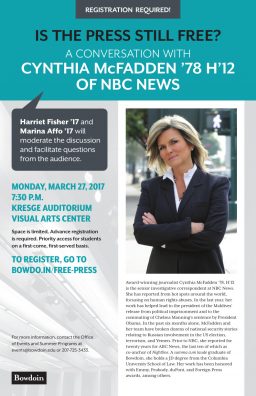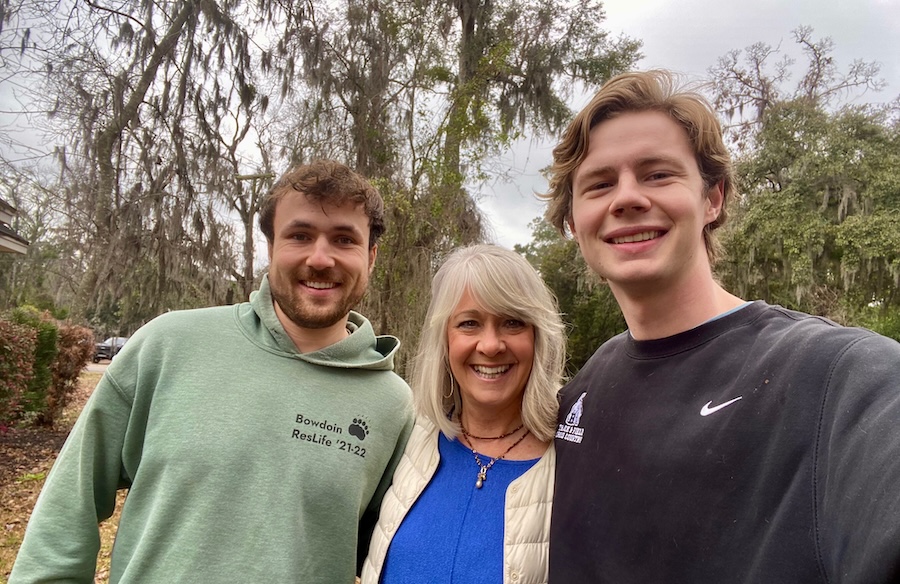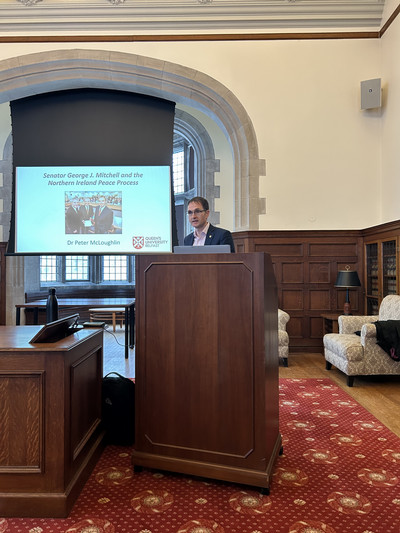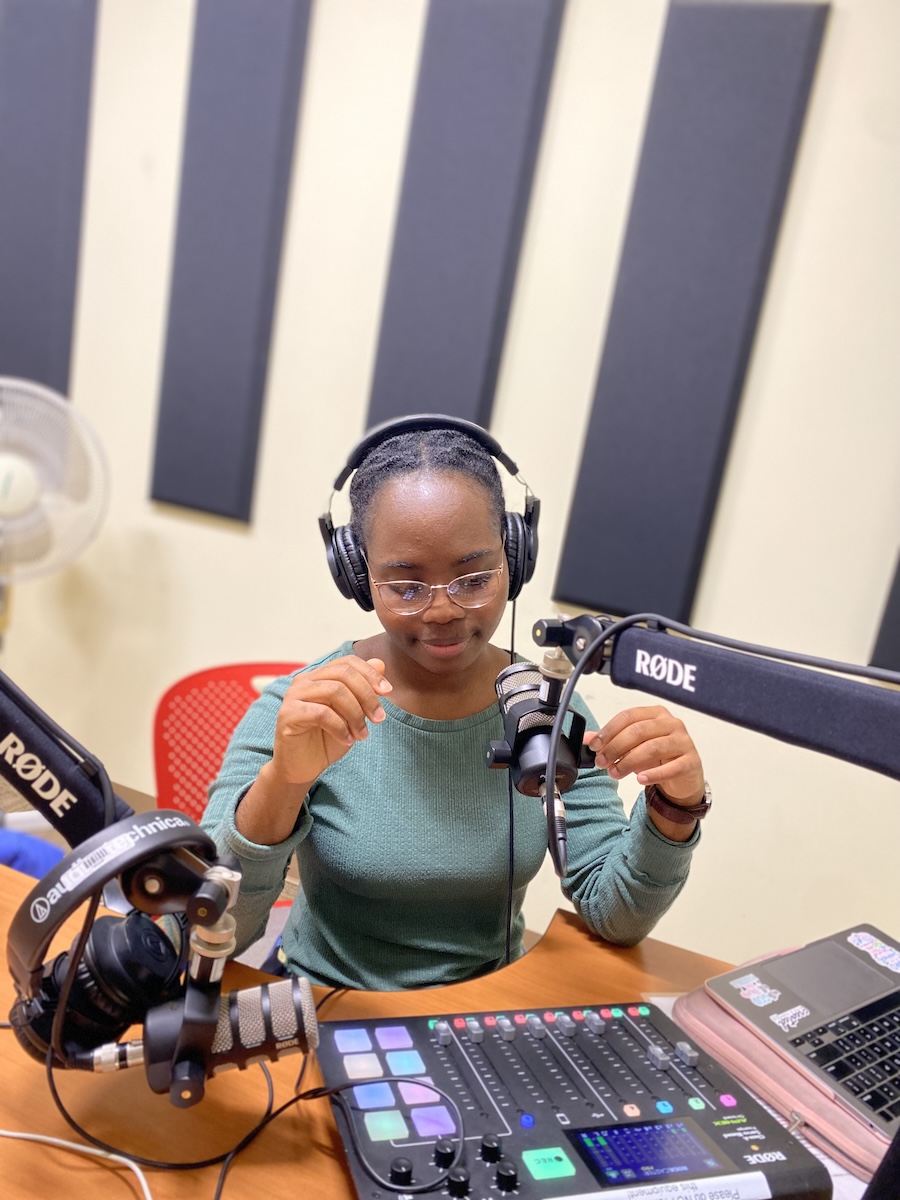NBC News Correspondent Cynthia McFadden ’78, H’12 Declares Press is as Robust as Ever
By Rebecca Goldfine






Before NBC, she reported for twenty years for ABC News, serving 10 years as co-anchor of Nightline. A summa cum laude graduate of Bowdoin, McFadden holds a law degree from the Columbia University School of Law, and her reporting has been honored with Emmy, Peabody, duPont, and Foreign Press awards. A first-generation college student from Lewiston, Maine, she received an honorary degree from Bowdoin in 2012.
"Is the press still free?" was the first question posed by Harriet Fisher. The answer, according to McFadden, "is a resounding yes."
But she warned that the current political environment for media is "chilling," particularly for members of the press who don't work for bigger, well-financed institutions. Even NBC is being investigated at the moment for some of its reporting, she noted.
Not that the press is intimidated. "Most of us feel invigorated by the need to do our jobs better and smarter, and more robustly," she said.

Here are a few points McFadden made in her talk:
"I do worry about the tenor of the times, and the tenor of the conversation. Administrations always see the press as a pain in the neck...but to declare us the enemy of the people is a bridge that none of us in our lifetimes has ever seen. It's worrisome."
"It is very hard to communicate with this White House. Getting a callback from this White House is not easy. What does a denial from this White House mean? You call the White House and say, 'sources have told us X, Y, and Z.' [They reply,] 'Not true.' What does that mean? In previous administrations, that conversation would have been very specific about particular parts of concern. They would say, 'We would prefer you not to air this, we feel it will reveal national security secrets in a way that will expose the country to danger.' Those are the kinds of concerns you listen to very carefully....But it is very hard to know what this administration means when they offer a full-throated denial. It is very difficult to work with that, without any specifics. To some extent, that can have a chilling effect."
"One thing the public is concerned about is the use of anonymous sources [in media reports]...How can you evaluate what I am telling if you don't know what sources I'm relaying on? At the same time, many reports can't be done at all if we don't rely on anonymous sources. If you see a report I do or my colleague does, you can be sure that someone in the news organization knows who the source is and believes this person has access to the information they have given us. Often the person will have been — the term we use is 'in the room' — which is to say, the person was in the room when whatever was discussed, or the policy was revealed, or they were involved in the creation of it."
In answer to a question how to sift through all news, particularly the onslaught of partisan, or polarized news, McFadden answered, "Why not embrace it? One of the notions is that more information is better than less information. The more disparate voices we read, the better our understanding....There isn't one perfect pure place to go in happy heaven news land...where you can get everything. And you wouldn't want that. So suck it all in, as much as you can, and ask questions."
"Trusted news sources are a good place to start. There are many large media institutions that you should consider trusted. That doesn't mean they always get it right. But by and large we strive to get the facts right. That doesn't mean we have to be opinion-less. I'm certainly not opinion-less, but it does mean I have to be fair."
"I don't rue the day the Internet was invented. I don't think this huge volume of often terrible information is bad for us. I think what is bad for us is not having enough of a critical sense of sorting things out."
"Push the people who are doing the reporting. We actually read the comments people write. You can influence the kind of news you are getting, by bothering to write back. Every story we do is posted online. People are paid every day to read what you have to say on the bottom of those stories. So say it! ... 'Cynthia was so stupid. Even though she went to Bowdoin, that didn't make any sense.' Say it! Interact. Demand better. If they do a puffball piece, say, 'Come on guys, get serious.' You don't have to passive recipients of the news."
"It was a privilege to be here [at Bowdoin]. My teachers here, my classmates, changed me forever, and I am so grateful. It is such an honor to be back. This place is very special to me."



